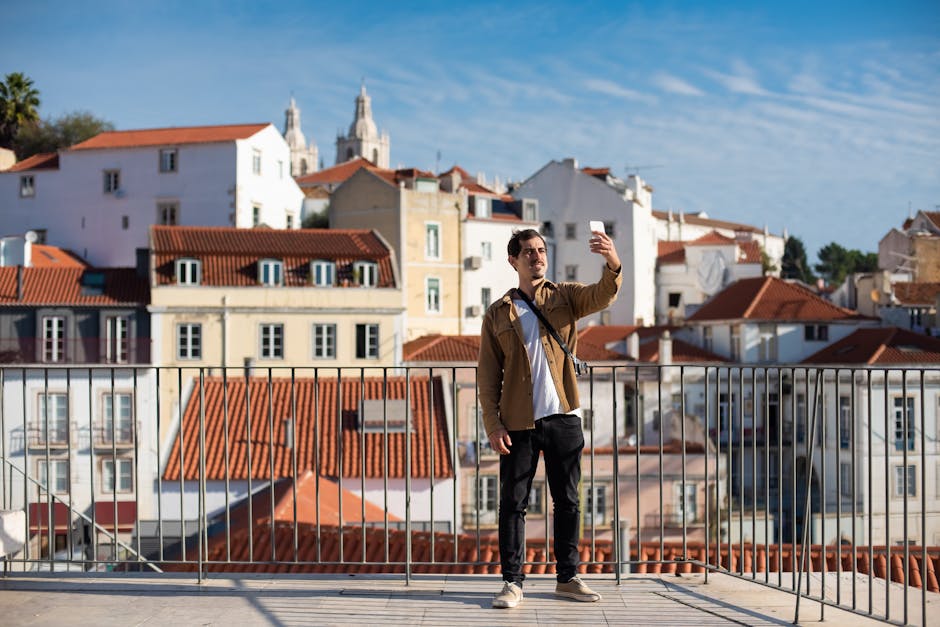The global tourism industry is a dynamic and ever-evolving sector. Technological advancements are profoundly reshaping the way travelers plan, experience, and engage with destinations. From personalized itineraries to immersive virtual tours, technology is transforming the entire travel and tourism ecosystem, fostering innovation and enhancing the overall visitor experience. This article explores the multifaceted ways in which technology can amplify the richness and impact of tourism experiences.
A pivotal role is played by mobile applications, now indispensable tools in modern travel. These platforms offer a wealth of information, from real-time flight tracking and hotel booking to restaurant recommendations and interactive maps. Personalized travel apps, tailored to individual preferences, provide curated content, allowing users to discover hidden gems and local experiences aligned with their interests. Imagine a traveler seeking a historical culinary journey through Italy. A bespoke app can suggest authentic trattorias, arrange pre-booked reservations, and translate menus into their chosen language, ensuring a seamless and enriching cultural immersion. Furthermore, these applications facilitate seamless communication, enabling travelers to connect with local guides, fellow tourists, and even family members, creating a sense of community and support throughout their journey.
Beyond apps, virtual and augmented reality (VR/AR) technologies are emerging as powerful instruments for enhancing tourist engagement. VR simulations allow travelers to explore destinations virtually before embarking on a trip, providing a realistic preview of landscapes, historical sites, and cultural attractions. This pre-trip immersion fosters anticipation and excitement, making the actual experience even more captivating. Imagine experiencing the grandeur of Machu Picchu, the mysteries of the Egyptian pyramids, or the vibrant streets of Marrakech from the comfort of your home, before setting foot in the real thing. This immersive experience reduces uncertainty and promotes informed decision-making.
Augmented reality, on the other hand, superimposes digital information onto the real world. A tourist in Rome, for instance, could utilize an AR app to see historical information overlaid on ancient ruins, bringing the past vividly to life. AR can also be integrated into the tourism industry to provide interactive games, quizzes, or scavenger hunts, turning mundane sightseeing into an engaging experience. These technologies are no longer limited to luxury travel; they are becoming accessible and affordable for a wider range of tourists. The integration of these interactive elements enriches the experience and provides a deeper connection with the destination’s cultural and historical heritage.
Another critical area of technological advancement is data analytics and personalized recommendations. Sophisticated algorithms analyze vast quantities of data, including travel patterns, user preferences, and review information. This data-driven approach enables personalized recommendations for accommodations, activities, and dining experiences. For instance, a data-driven tourism platform could identify a traveler’s interest in eco-tourism and suggest specific accommodations and tours in environmentally conscious destinations. This personalized approach allows travelers to focus on experiences that resonate most with their personal interests.
Crucially, these technological advancements are not just about creating a better experience; they are also significantly impacting sustainability in the tourism sector. Smart travel apps, for example, can help tourists optimize their travel routes, minimizing their environmental footprint. Data analytics can also assist in managing visitor flows to sensitive sites, mitigating over-tourism and environmental strain. Real-time information on traffic conditions, public transportation schedules, and alternative routes can guide travelers towards sustainable and environmentally responsible travel choices.
Further, online booking platforms and payment systems have streamlined travel procedures. These platforms facilitate quick and easy booking of flights, accommodations, and tours, and often allow for secure and diversified payment options. This ease of access helps in removing logistical barriers and allowing tourists to focus on the enjoyment of their journeys. The rise of peer-to-peer accommodation platforms, connecting travelers with local hosts, also broadens access to diverse and authentic cultural experiences, encouraging a more immersive understanding of the local culture and traditions. This decentralization of the tourism industry has further empowered local communities and enhanced their participation in the travel process.
Despite these remarkable advantages, certain challenges persist. Accessibility and digital literacy remain concerns, particularly for travelers from less digitally advanced regions. Addressing this issue is crucial to ensuring inclusivity and providing a welcoming environment for all. Moreover, the privacy and security of traveler data are paramount concerns. Robust security measures and transparent data policies are essential to building trust and maintaining the integrity of online platforms.
The future of tourism is inextricably linked to technological advancement. As technology continues to evolve, we can anticipate even more innovative solutions for enhancing travel experiences, making tourism more accessible, engaging, sustainable, and fulfilling. From immersive VR tours to personalized travel apps and data-driven recommendations, technology is revolutionizing the way we travel. This transformative power is transforming not just the travel experience but also the relationship between travelers and the destinations they explore, leading to a more enriching and sustainable future for the entire tourism industry.
